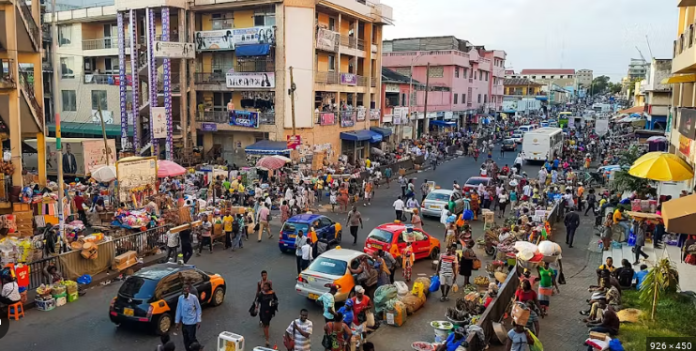Ghana’s reputation as the “Gateway to Africa” faces a growing challenge that has nothing to do with politics or infrastructure: visitors and businesses are finding the country simply too expensive to operate in comfortably.
Social media complaints from West African visitors paint a stark picture of sticker shock. A recent tweet captured the frustration many feel: “Everything here cost 3x Nigeria own. Ghana too expensive abeg.” Such sentiments are becoming increasingly common among regional travelers and business people.
The affordability crisis poses a fundamental question about Ghana’s regional positioning. While the country continues promoting itself as Africa’s business hub, hosting the African Continental Free Trade Area Secretariat and numerous international conferences, the reality on the ground tells a different story.
President John Mahama recently emphasized Ghana’s gateway role during investment trips to Japan and Singapore. However, marketing alone cannot overcome the practical barriers that high costs create for potential investors and visitors.
Rent prices in Accra often match those in European and American cities, creating serious challenges for both expatriate staff and local workers. A basic apartment in the capital can consume most of a minimum wage earner’s monthly income, forcing many into overcrowded accommodation or lengthy commutes.
Food costs fluctuate with every currency depreciation and fuel price increase, making basic nutrition expensive for ordinary families. Items like milk, bread, and cooking oil feel like luxury purchases for workers earning minimum wage, while restaurant meals can cost three times more than equivalent options in Lagos or Abidjan.
Utility bills compound the problem with regular increases that erode household budgets. Electricity and water costs have become significant expenses for families already struggling with housing and food expenses.
For businesses, these living costs translate directly into higher operational expenses. Multinational companies face inflated costs for housing expatriate staff, while local entrepreneurs struggle with expensive inputs, utilities, and transportation that undermine their regional competitiveness.
Some firms are reconsidering their regional strategies, using Ghana as a transit point rather than establishing substantial operations. When neighboring countries offer cheaper labor, affordable housing, and lower utility costs, Ghana’s strategic advantages become less compelling.
The tourism sector faces similar challenges. While Ghana offers political stability, cultural attractions, and a welcoming environment, high costs reduce the value visitors get for their spending. This forces potential tourists to consider alternative destinations with better value propositions.
The fundamental economic issues driving high costs require systematic attention. Currency instability creates price uncertainty that affects everything from imported goods to locally produced items tied to international commodity prices.
Housing supply constraints in Accra drive up rents beyond what most workers can reasonably afford. Limited affordable housing development has failed to keep pace with urban population growth, creating artificial scarcity in the rental market.
Food and energy supply chains need improvement to reduce production and distribution costs that get passed on to consumers. Inefficient logistics and transportation networks add unnecessary expenses to basic goods.
Market concentration in some sectors allows arbitrary price increases without competitive pressure. Addressing monopolistic practices could help restore more reasonable pricing for essential services.
Without addressing these structural issues, Ghana’s gateway positioning risks becoming what critics call empty branding. The country has genuine advantages in political stability, strategic location, and business-friendly policies, but these benefits lose impact when offset by prohibitive costs.
Regional competitors are watching carefully as Ghana struggles with affordability challenges. Countries offering cheaper alternatives for business operations and tourist visits may gradually capture market share that Ghana currently enjoys.
The challenge requires coordinated policy responses rather than piecemeal fixes. Addressing currency stability, housing supply, infrastructure efficiency, and market competition simultaneously could restore Ghana’s cost competitiveness.
Time may be running short for such comprehensive reforms. Each frustrated visitor who discovers Ghana’s high costs represents potential damage to the country’s regional reputation and future business prospects.
Source: newsghana.com.gh










